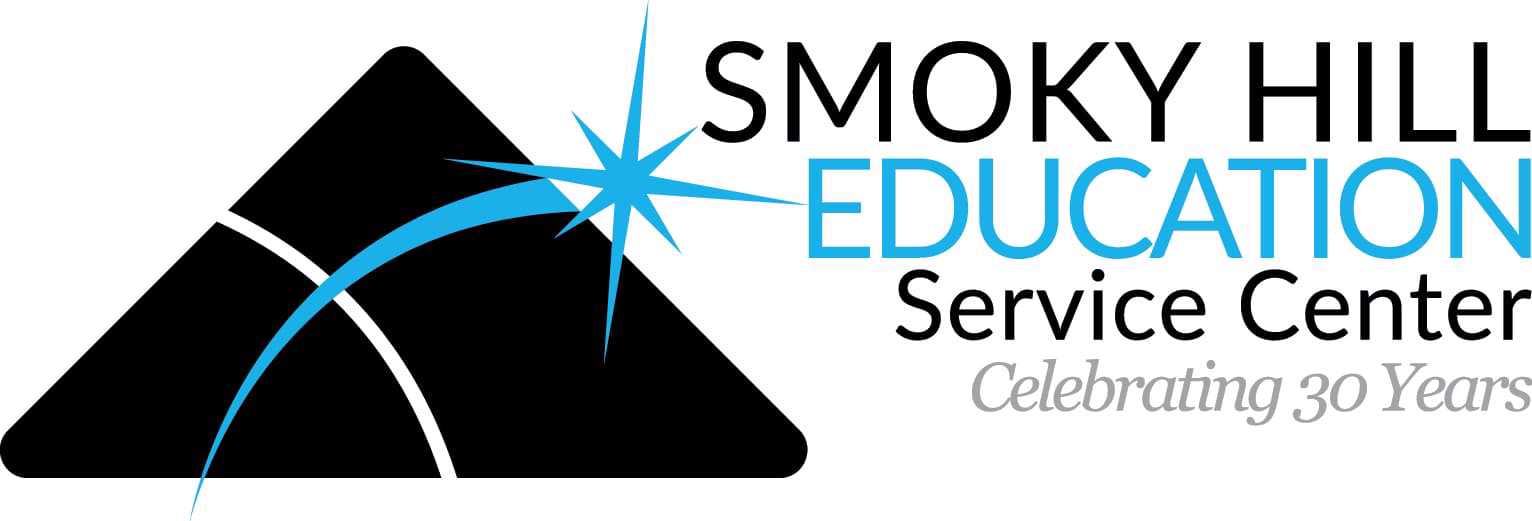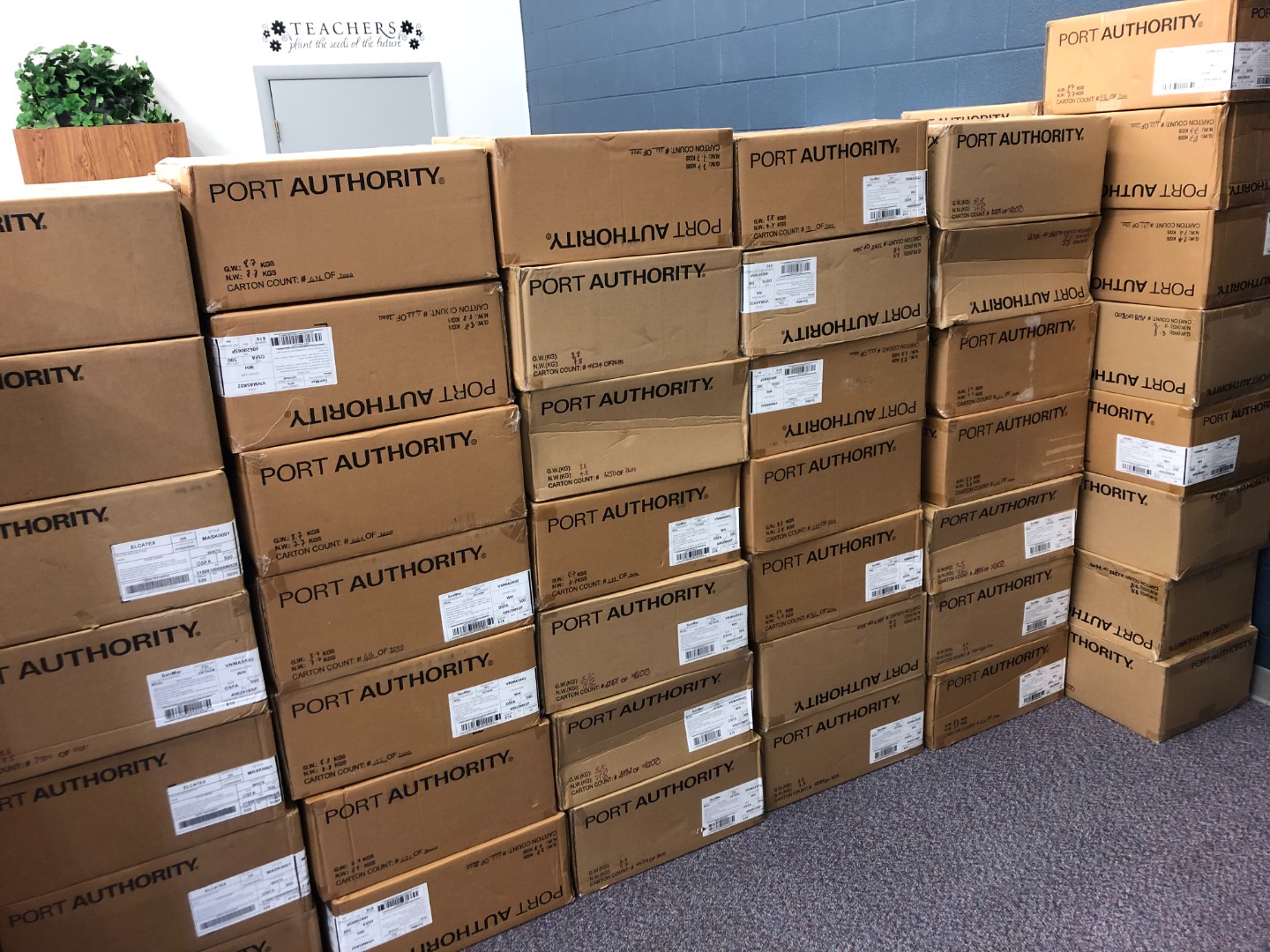"SHESC Messenger": Start of November 2020

SHESC Messenger
Start of November 2020
|
Kansas Teaching & Leading Project Helps with 'Navigating Change' Members of the Kansas Association of Education Service Agencies (KAESA) and KSDE have announced the Kansas Teaching & Leading Project. To support educators in using the State's "Navigating Change" guidance and dealing with COVID-19, the project includes relevant and timely webinars, useful resources, and on-demand professional development - all in one convenient, comprehensive website at kansasteachingandleadingproject.org. Through the website, educators can receive support with:
To keep current on the latest updates and support available through the project, sign up for its periodic newsletter at go.smokyhill.org/teaching-leading-news. |
|
|
More Than $240K Federal Grant Supports Distance Education Nearly a quarter-million dollars in federal grant funding will support distance learning in Kansas for those served by Smoky Hill Learning Center (SHLC). The funding is part of a $791,638 Distance Learning and Telemedicine grant that will invest in equipment and online platforms for Kansas students – both traditional and adult. The grant under the Rural Utilities Service Program – administered by the U.S. Department of Agriculture – will go to Kansas Association for Interactive Distance Education (KAIDE) members. $240,880 – nearly a third of the larger statewide grant – is earmarked specifically for Smoky Hill Education Service Center and SHLC. Troy Marseline, SHLC Coordinator, said this announcement from the USDA was great news for online learners the center serves. “This significant amount of funding greatly helps students across Kansas to stay on track and earn a high school diploma on time,” he said. “These grant dollars will be a tremendous help to our program and the students we serve for the next three years.” For SHLC, the money will purchase computers, tablets, interactive “smart” boards, online learning platform licenses, and more. Chris Moddelmog, SHESC Executive Director, said the grant would help meet essential needs in rural education. “Supporting interactive distance learning has always been important to KAIDE and SHESC, but doing so has become even more critical during this time of COVID-19 concerns,” Moddelmog said. “Many schools are using at least some form of distance learning to meet students’ needs, so having adequate technology and up-to-date equipment is essential now and no longer a luxury.” Lynne Hinrichsen, USDA Rural Development State Director for Kansas, said that the USDA helps make rural America stronger and healthier, leading the entire nation to prosper. “Distance learning provides more educational resources to difficult-to-reach populations,” Hinrichsen said. “This project enhances the focus on rural education.” The KAIDE project will expand educational opportunities for rural residents within the five member areas, encompassing 36 counties in Kansas. The SHESC-area schools participating in the grant are: USD 307 Ell-Saline, USD 325 Phillipsburg, USD 334 Southern Cloud (Miltonvale and Glasco), USD 347 Kinsley-Offerle, USD 426 Pike Valley. Students at Victory House in Brewster, Kansas, and remote learners with USD 473 Chapman will also benefit from the grant through the Smoky Hill Learning Center program. All SHESC member districts and schools will also benefit indirectly through interactions with education consultants, who will use some of the new equipment purchased with grant funds. Additional SHESC member districts that are a part of the Interactive Consortium Academic Network (I-CAN) will also benefit from the grant. Those districts are: USD 110 Thunder Ridge, USD 269 Palco, USD 270 Plainville, USD 271 Stockton, USD 292 Wheatland, USD 392 Osborne County, and USD 399 Paradise. The Kansas grant is just one part of a larger $72 million USDA investment across 40 states, benefiting more than 12 million rural residents. USDA Rural Development provides loans and grants to help expand economic opportunities and create jobs in rural areas. This assistance supports infrastructure improvements; business development; housing; community facilities such as schools, public safety and health care; and high-speed internet access in rural areas. For more information, visit www.rd.usda.gov/ks or call 785-271-2700. |
|
School Specialty Offers New COVID-19 Prevention Products to Volume School Specialty now has a downloadable, easy-to-browse pdf catalog focused on products AND expert advice to help address COVID-19 in schools! Visit go.smokyhill.org/SSI-COVID-catalog to browse the new options and learn from experts in classroom facilities management. New products include youth-size cloth masks, take-home envelopes for sending and returning homework and information, physical distancing aids and disinfecting wipes! If your school or district isn’t already signed up, visit go.smokyhill.org/vp for details on securing your FREE registration login. |
|
|
SHESC Helps Distribute More Than 40K Face Masks Thanks to a cooperative effort of the Kansas Association of Education Service Agencies (KAESA) members, the Kansas Division of Emergency Management, and KSDE, Smoky Hill Education Service Center was part of a statewide effort that distributed nearly 1 million washable, reusable cloth face masks to students, teachers, and school staff absolutely free. Face masks - even cloth ones below medical grade - have now been shown to have a significant effect on reducing the rate of transmission of COVID-19. They are an important public health precaution, along with good hygiene and hand-washing, physical distancing, and remaining at home when ill. There were 228 school districts that requested the masks, and SHESC did its part, receiving and distributing to member districts 85 cases in mid-October, which totaled more than 40,000 masks. Our thanks to all the organizations and government agencies that came together to make this effort a huge success - saving lives and preserving health for not only students and educators but for their families as well! Organizations needing face masks are encouraged to contact vp@smokyhill.org for more information about placing personal protective equipment orders through SHESC Volume Purchasing. |
|
|
Featured PD: "A Framework for Understanding Poverty" This valuable opportunity is based on the work of Dr. Ruby Payne. Participants will look at the hidden rules that are part of economic classes and how this affects student learning and behavior. At the end of the training, participants will:
Next session will be 9:00 a.m. - 3:30 p.m. on Thursday, November 19. Register at go.smokyhill.org/poverty-framework and see all of the professional development options at go.smokyhill.org/register. |
|
Don't forget that the last day to vote (in person) is Tuesday, November 3. In order to vote, you must have registered by October 13. Polls open at 7:00 a.m. and close at 7:00 p.m. Advance in-person voting must be completed by 12:00 p.m. on Monday, November 2. Those choosing advance voting by mail must have their return envelope postmarked by November 3 and it must be received in your county clerk's office by close of business on Friday, November 6. Alternatively, an advance ballot by mail may be returned in person to the county clerk's office by 7:00 p.m. on November 3. Make sure your voice is heard and set an example for both colleagues and the students you serve! Be sure to follow these tips and know this information to ensure your voting experience is smooth and that your vote is counted:
|
|






